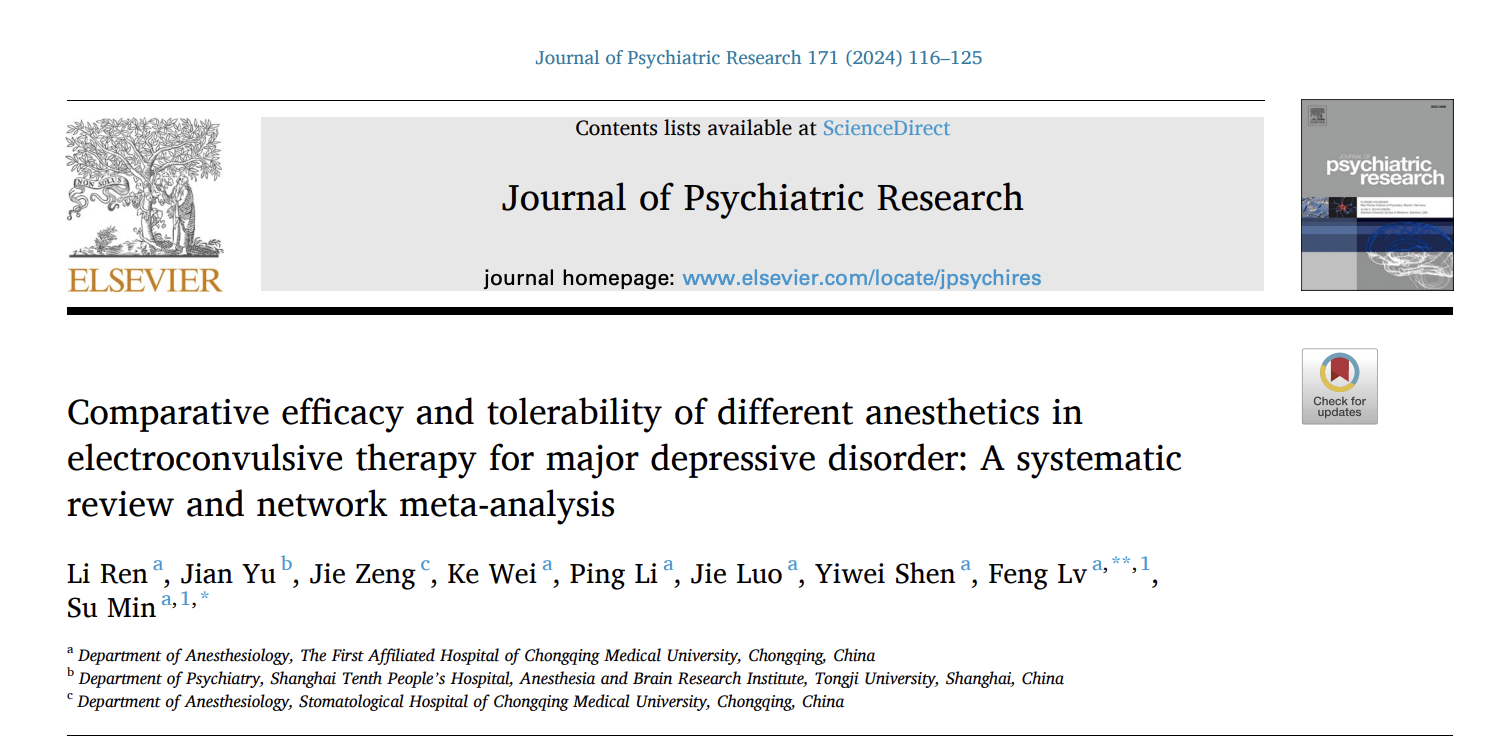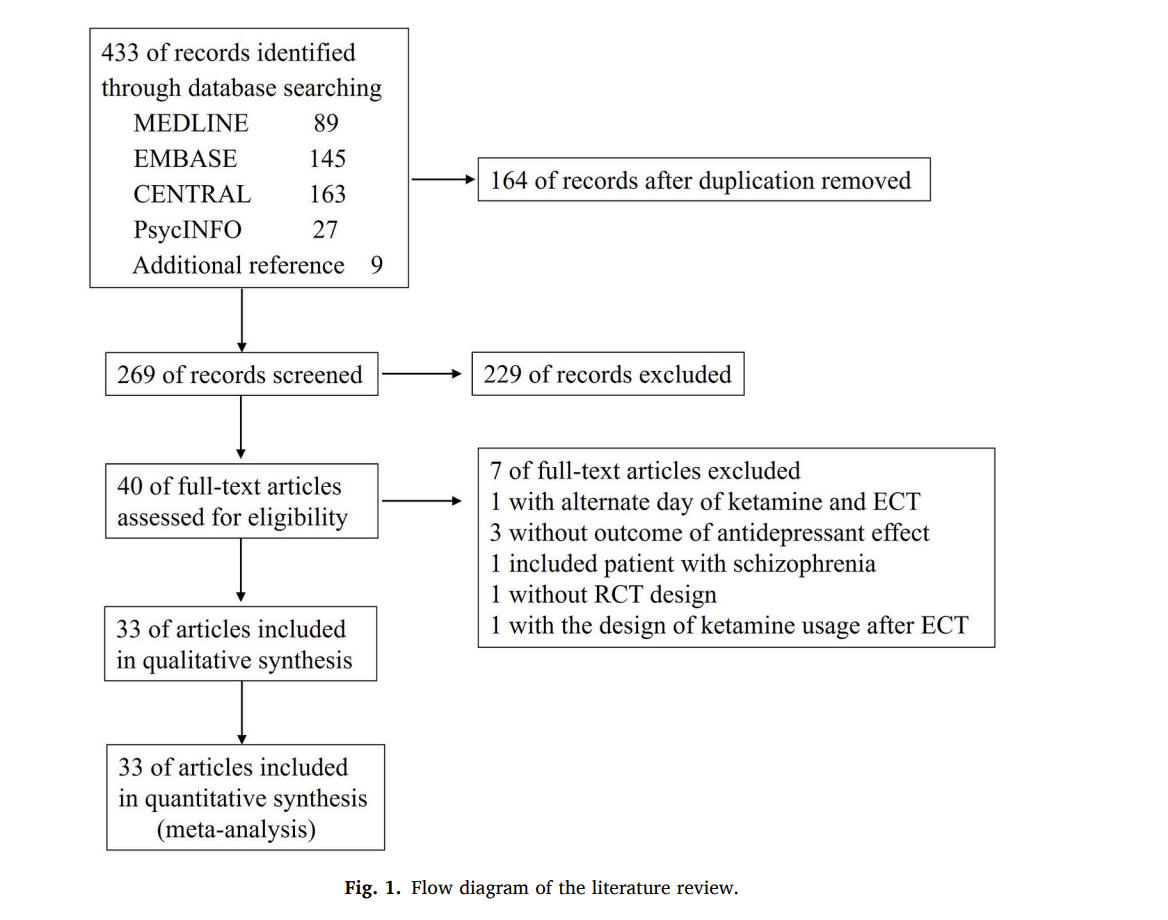Anesthetic Agents in ECT: New Review
Comparative efficacy and tolerability of different anesthetics in electroconvulsive therapy for major depressive disorder: A systematic review and network meta-analysis.
J Psychiatr Res. 2024 Jan 16;171:116-125. doi: 10.1016/j.jpsychires.2024.01.031. Online ahead of print.PMID: 38271762
The abstract is copied below:
Electroconvulsive therapy (ECT) is one of the most effective treatments for major depressive disorder. Modern ECT is conducted with anesthesia, however, the optimal anesthetic agent for ECT is yet to be understood. This study is aimed to compare the effects of different anesthetic agents on antidepressant efficacy and tolerability in depressed individuals undergoing ECT. We searched MEDLINE, EMBASE, the CENTRAL and PsycINFO for randomized controlled trials from database inception until Nov 13, 2022 (PROSPERO: CRD42022375407). Global and local inconsistencies, heterogeneity and publication bias were assessed. Rankings were calculated with the surface under the cumulative ranking curve. A total of 33 studies involving 1898 patients were enrolled. Remission rates were higher for ketamine anesthesia as compared to adjunctive ketamine and propofol. In terms of ranking, ketamine was found to be first in terms of response/remission rates and depressive scores after the 1st, 3rd and 6th ECT and at the end of ECT session, while a higher incidence of adverse events was also observed. No significant advantage of any anesthetic was revealed for the cognitive function after ECT. In summary, based on current evidence, no specific anesthetic is recommended for ECT anesthesia. However, despite more side effects, ketamine monoanesthesia seems to reveal a potential benefit in improving antidepressant efficacy of ECT, and further studies are needed to investigate the relationship between anesthetic agents and the therapeutic effect of ECT.
Keywords: Anesthesia; Depression; Electroconvulsive therapy; Network meta-analysis.
The review is here.
And from the text:
This review of ECT anesthetic agents adds little to our understanding of the relative merits of induction agents. It is poorly written and some of the sentences are so weird that they call into question the veracity of the rest of the text. The reviewers/editors were asleep at the switch on this one. I recommend relying on the extant literature and clinical experience for assessing the characteristics of ECT anesthetic induction agents.






Comments
Post a Comment